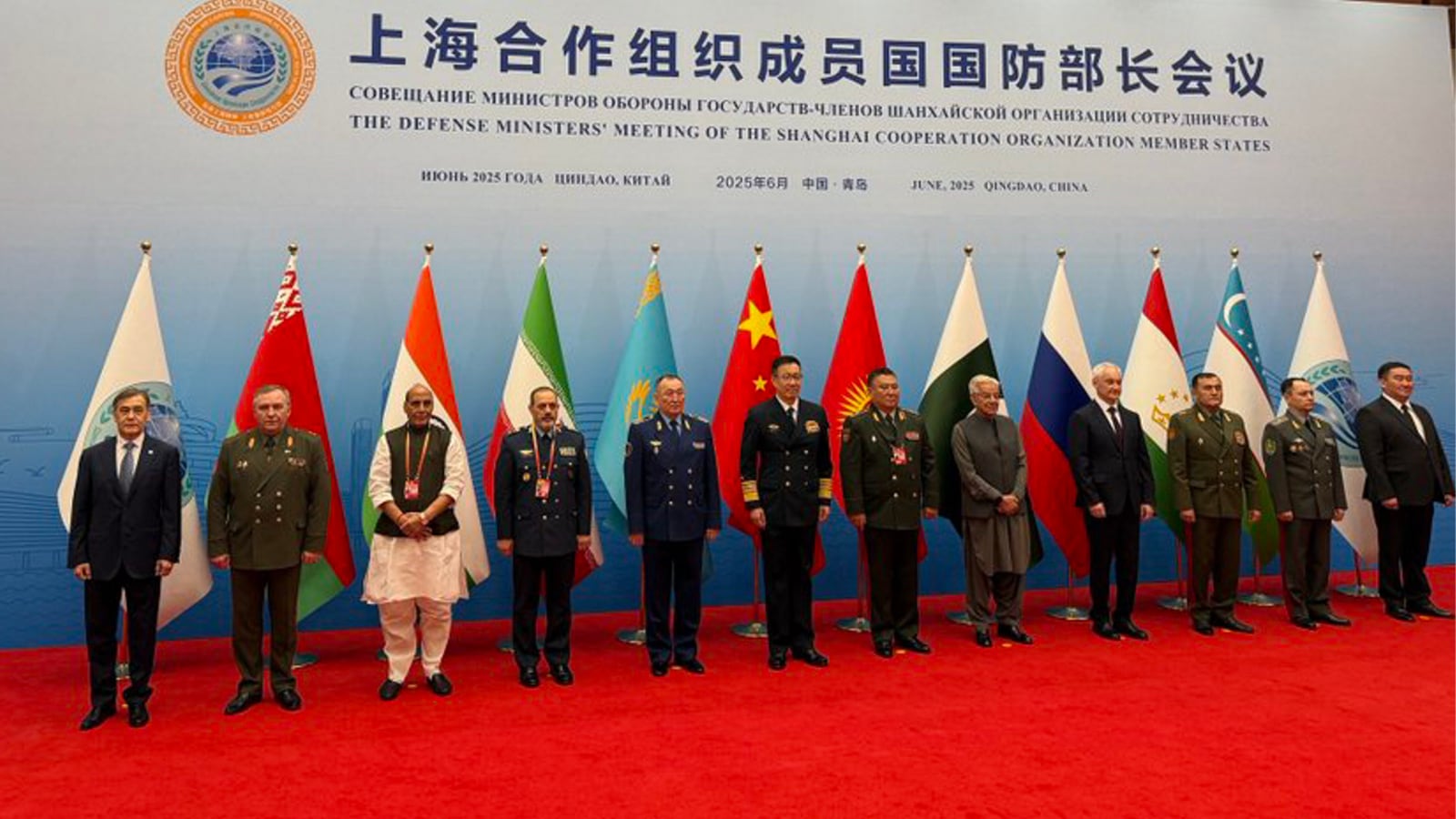By News18 Utpal Kumar
Not every agreement inked from a position of strength translates into strategic triumph. The 1971 war is a telling reminder. Bharat’s decisive victory split Pakistan, created Bangladesh, and saw 93,000 Pakistani soldiers surrendering in Dhaka—one of the most humiliating defeats in modern military history. Yet, just months later, the Simla Agreement of 1972 exposed how battlefield gains could be squandered at the diplomatic table. Despite explicit warnings from then RAW chief RN Kao to “count her fingers” after shaking hands with Zulfikar Ali Bhutto, Mrs Indira Gandhi fell for his charm, unilaterally agreeing to release the Pakistani prisoners without even securing the return of Indian soldiers languishing in Pakistani jails.
If all treaties signed from a point of strength are not success stories, then all treaties not signed aren’t failures either. Last week, when Defence Minister Rajnath Singh refused to sign the SCO’s joint statement on countering terrorism, he not only safeguarded Bharat’s core security interests but also offered a glimpse of a country willing to stand firm—alone if necessary—in pursuit of its national priorities.
The Defence Minister’s conduct at the SCO summit reflects a growing confidence, maturity, and self-assuredness of the country while dealing with global powers. Unlike in the past, when New Delhi would have been tempted to make a compromise for the sake of “consensus” or “regional solidarity”, today’s Bharat doesn’t mind walking that extra mile on treacherous terrains if the country’s long-term interest so demands.
The SCO draft statement was a watered-down document that, with Chinese collusion, sought to downplay Pakistan’s terror connections. It also refused to acknowledge, far less condemn, Islamabad’s sinister role in not just waging but also spreading global jihad. What particularly irked New Delhi was the refusal to give the dastardly Pahalgam attack a place in the draft statement. For Bharat—having borne the brunt of Pakistan-sponsored terrorism for decades—any endorsement of such a document would have compromised its core security interests. More so in the wake of the much successful Operation Sindoor, where Bharat drew for Pakistan—and the world—a new Lakshman Rekha on terrorism.
Critics argue that Bharat should reconsider its engagement with institutions like the SCO, given their internal dynamics and frequent tilt against Bharat’s interests. But there is a compelling counterpoint: Bharat’s very participation forces these blocs to confront their inconsistencies. By attending and then refusing to endorse a flawed document, Bharat highlighted the SCO’s duplicity on terrorism. New Delhi’s presence gives the SCO a democratic legitimacy, especially when most of its member states lack genuine democratic credentials. At the same time, it does moderate the innate anti-Bharat tendencies of such institutions.
Yet, the incident is also a reminder of the solitary nature of Bharat’s fight against Pakistan-sponsored terrorism. The West’s support often stops at rhetoric. Washington’s Bharat policy is still largely China-driven, focused on counterbalancing Beijing rather than addressing Islamabad’s terror machinery. Europe, preoccupied with internal crises, besides being wary of disturbing its fragile equations with Islamic states, rarely ventures beyond routine condemnations, followed by an exhortation to both sides to return to talks.
Russia, Bharat’s time-tested partner and an SCO member, finds itself increasingly aligned with China, compelled by geopolitical realities and economic compulsions after the Ukraine war. Moscow’s growing dependence on Beijing inevitably narrows the space for unequivocal support to New Delhi, especially on issues where Chinese and Pakistani interests converge.
Perhaps the most sobering takeaway from the SCO saga is the fact that Bharat is, in many ways, alone in its fight against terrorism emanating from Pakistan. While Western capitals may occasionally put up rhetorical support in Bharat’s favour, very few will be willing to shun, far less confront, Pakistan for its terror connections.
However, the path ahead is not without challenges. Bharat will likely face more such moments where standing up for its core interests may mean standing alone. The international system is inherently transactional. Allies shift their positions, interests evolve, and moral arguments often give way to strategic calculations. This reality makes it imperative for Bharat to continue diversifying its partnerships—deepening ties not just with the Quad countries but also with nations in Europe, ASEAN, Africa, and the Middle East. Simultaneously, Bharat must persist in exposing Pakistan’s duplicity on terror at every available forum, denying Islamabad the international space it needs to whitewash its record.
Be that as it may, the fact of the matter is that Bharat’s conduct at the SCO summit reflects the case of a confident, self-assured, and surefooted nation. Yes, there is this concern of finding itself isolated on the international platform, but one needs to see it in the larger context of Bharat rising at an unprecedented pace and scale—a pace and scale that seem to be unnerving its friends and foes alike.
The next couple of decades will be critical. As Bharat continues its unprecedented economic and geopolitical ascent, it will inevitably unsettle entrenched interests, both among rivals and even some partners. How deftly Bharat navigates this phase—balancing assertion with strategic partnerships, principle with pragmatism—will determine how swiftly it cements its place as a global power.
The good thing is, as Rajnath Singh’s resolute stance at the SCO shows, Naya Bharat not just counts the fingers after shaking hands with other powers; it has also started making them accountable if some of the fingers go missing after the handshake!
